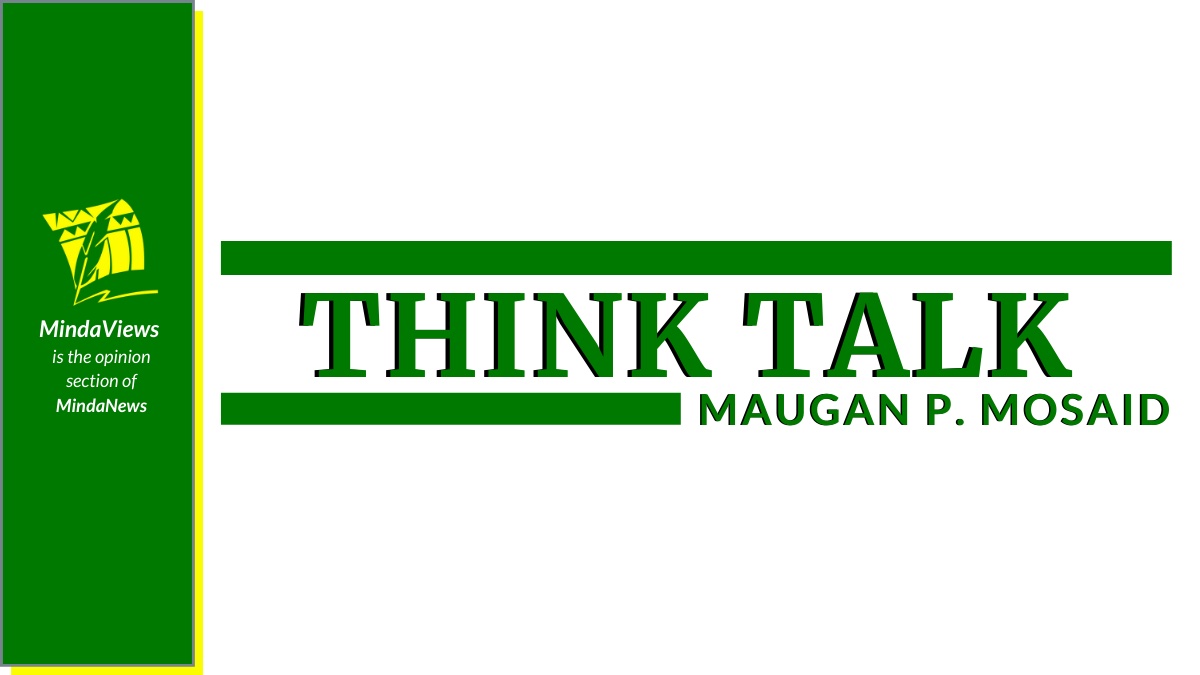
MATALAM, North Cotabato (MindaNews / 22 May)—I’d like to talk a little about having a balanced personality but not really from the point of view of psychology or psychologists. This is my own practical way of looking at things, and my own personal understanding of the complex relationship between and among the different dimensions of man, both as rational and emotional being.
We are all affected (at least the normal humans) and/or influenced by a set of opposing emotions and feelings like loving-hating, egoism-altruism, superiority-inferiority, anger-calm, joy-sorrow, and other similar dichotomies.
Here is a situation where equilibrium and balance may not only differ from each other but they are also equally confusing. For example, under normal circumstance we may say that if in one day we have loved as much as we have hated, we did something equal and therefore we have achieved equilibrium by balancing the love-hate equation. Same is true for the other emotional dichotomies.
But, is this really true? If we have loved as much as we have hated, can we say we have achieved emotional equilibrium and balanced personality? You and I know the answer is NO.
Physiologists and psychologists have uncovered a wide variety of structures and processes which make it possible to view the human machine as a complex of moving equilibria. Walking and vision, as cases in point, are controlled by delicate automatic mechanisms which bring into play opposing sets of muscles to adjust the body to the requirements of gravity and spatial distance. Metabolism is a balance struck between anabolism and catabolism. A directorate of glands seems to regulate the proportion of water, oxygen, salts, and so on in the body. Growth itself is the resultant of the interplay of a growth-stimulating factor and a growth-inhibiting factor. Dwarfism and gigantism represent a certain unusual degree of free play on the part of one or the other of these opposing factors. Man is both structurally and bio-chemically balanced. Posture and diet are matters of balance which may be controlled to a considerable degree.
Biological and psychological researches have not yet revealed all the physical and bio-chemical balances maintained by the human organism. Nor must we suppose that their cataloging and correlating would provide us all we would need to understand man as a biological and psychological datum.
The emotional dichotomies of loving-hating, egoism-altruism, superiority-inferiority, anger-calm, joy-sorrow, etc. in man are such an interesting thesis for psychologists.
For purposes of this treatise let me call one set of the dichotomy on the left as the “positive emotions” and those on the right as the “negative emotions” if they are arranged in two columns. In the absence of any credible study to this effect, we would tend to assume that probably a balanced emotional dichotomy is never to engage in the “negative emotions.” On the other hand, to engage only in the “positive emotions” is too ideal or rather too good to be true.
Without the benefit of extensive studies on this matter one will always be tempted to come out with the prognosis that the ideal emotional equilibrium in human beings is to have so much of the “positive emotions” and little of the “negative emotions.”
I rest my case up to this point.
(MindaViews is the opinion section of MindaNews. Maugan P. Mosaid holds a doctorate degree in rural development. He is a planning consultant and teaches Statistics and Methods of Research in the graduate school. He can be contacted at mauganmosaid6@gmail.com.)







